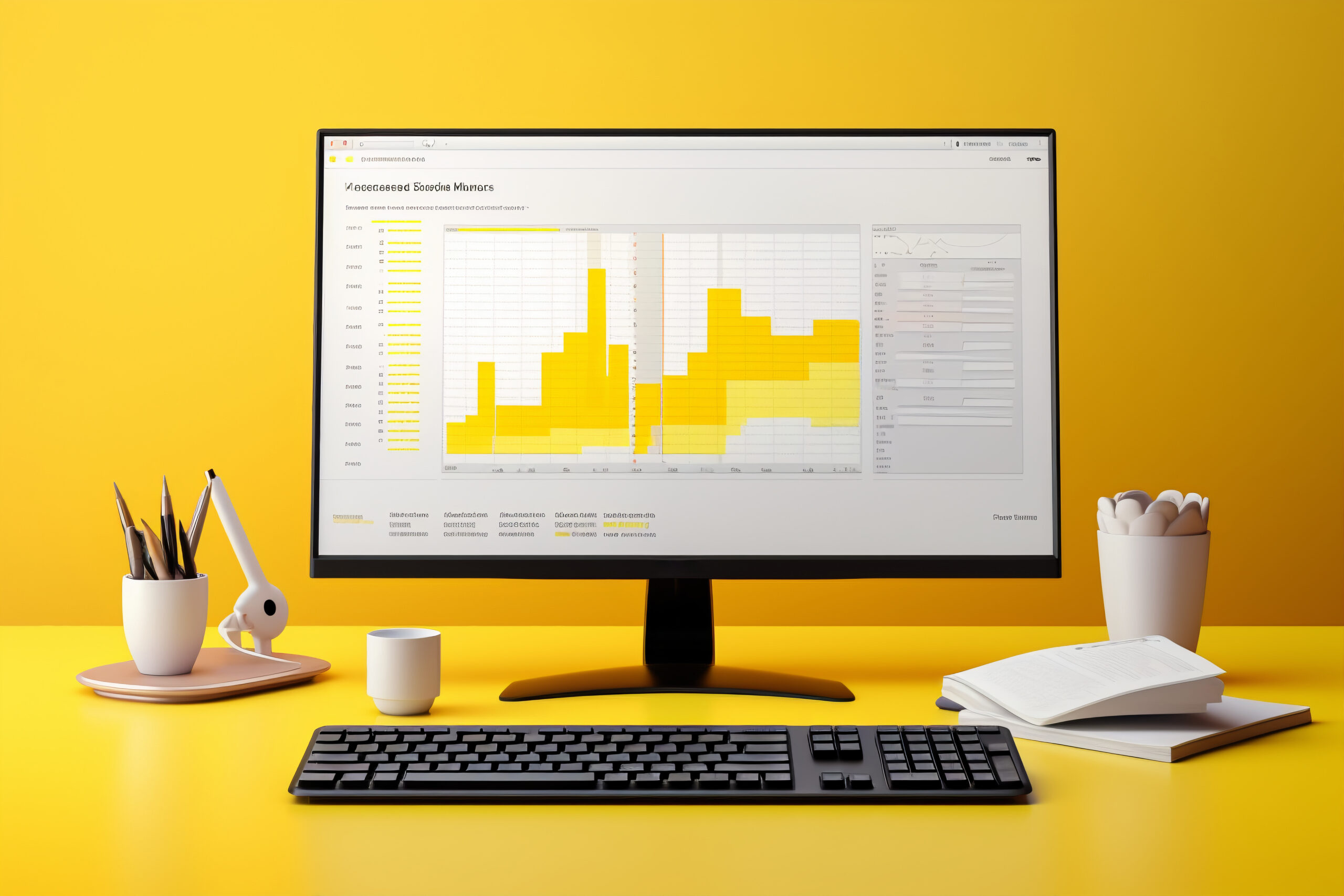Bookkeeping is the practice of keeping a company’s financial records accurate, organized, and up-to-date. For businesses of any size, maintaining clear financial records is essential for compliance, strategic decision-making, and financial stability.
Bookkeeping provides a reliable foundation for understanding where money is spent, where income is generated, and how efficiently a business is operating. Whether a company is small or large, bookkeeping is indispensable to its financial health.
What is Bookkeeping?
Bookkeeping is the systematic recording and organizing of a company’s financial transactions on a daily basis. These transactions include purchases, sales, receipts, and payments. The primary goal of bookkeeping is to create a clear, accurate, and organized financial picture that aids in the day-to-day operations of a business.
Proper bookkeeping allows businesses to:
- Track Financial Performance – Business owners can assess profitability and make informed decisions.
- Prepare for Taxes – Detailed records simplify tax preparation and ensure compliance.
- Meet Legal Obligations – Transparent records are essential for audits and regulatory requirements.
- Generate Financial Statements – Accurate records support the creation of balance sheets, income statements, and cash flow statements.
Bookkeeping vs. Accounting
While bookkeeping and accounting are closely related, they differ in scope and function. Both are essential for managing a business’s financial health, but each role has unique responsibilities.
Bookkeeping
-
- Definition: Bookkeeping is primarily concerned with recording and organizing financial data.
- Tasks: Includes recording daily transactions, tracking income and expenses, managing accounts payable and receivable, and reconciling bank statements.
- Focus: Bookkeepers focus on keeping accurate, up-to-date records of financial data.
Accounting
-
-
- Definition: Accounting involves interpreting, analyzing, and summarizing financial data to provide insights into a business’s financial health.
- Tasks: Accountants prepare financial statements, conduct audits, manage tax preparation, and offer strategic financial advice.
- Focus: Accounting provides a broader financial perspective and assists in high-level financial planning and decision-making.
-
Key Differences:
- Scope: Bookkeeping is transactional, while accounting is analytical.
- Requirements: Bookkeeping typically requires fewer qualifications than accounting, which may require certification.
- Goal: Bookkeeping keeps records organized, while accounting turns those records into actionable insights.
What Is Bookkeeping Services?
Bookkeeping services encompass various tasks that support the financial management and organization of a business. These services are essential for businesses of all sizes to maintain accurate financial records, which are foundational for successful decision-making and regulatory compliance.
- Core Bookkeeping Services
- Transaction Recording: Maintaining daily records of income, expenses, and other financial transactions.
- Accounts Payable and Receivable Management: Tracking payments owed by clients and to vendors, ensuring bills are paid and revenue is collected.
- Bank Reconciliation: Verifying that records match bank statements to detect and rectify discrepancies.
- Payroll Processing: Managing employee payments, including deductions and taxes, to ensure accurate payroll processing.
- Financial Reporting: Preparing statements like balance sheets and income statements to give an overview of financial performance.
- Advanced Bookkeeping Services
- Budgeting and Forecasting: Helping businesses set financial goals and predict future financial needs.
- Inventory Management: Tracking goods and stock levels to help maintain a balanced supply.
- Tax Preparation and Compliance: Compiling financial data to prepare for tax filings and ensure compliance with tax regulations.
- Custom Financial Reports: Creating tailored reports for specific business needs, such as profit margins by product line or department.
- Outsourced Bookkeeping Services
- Cloud-Based Solutions: Many businesses outsource bookkeeping to cloud services, allowing for remote access and real-time data.
- Cost Savings: Outsourcing often reduces overhead costs and allows businesses to access professional bookkeeping without a full-time employee.
- Expertise and Technology: Outsourced services often bring advanced tools and expert knowledge, which can help in better managing financial tasks and avoiding errors.
Bookkeeping vs. Accounting
Bookkeeping and accounting are closely related but distinct functions in the financial management of a business. Here, we break down the key differences to clarify the roles and responsibilities associated with each.
-
Scope of Work
- Bookkeeping: Focuses primarily on the recording and organization of financial transactions. Bookkeepers maintain a detailed and up-to-date record of every financial transaction, which serves as the foundation of a business’s financial records.
- Accounting: Encompasses a broader range of financial analysis and strategic advice. Accountants interpret, classify, and summarize financial data to provide insights into a business’s financial health.
-
Responsibilities
- Bookkeeper’s Role:
- Recording daily transactions.
- Managing accounts payable and receivable.
- Reconciling bank statements.
- Processing payroll.
- Accountant’s Role:
- Preparing financial statements, such as balance sheets and income statements.
- Conducting audits to verify the accuracy of financial records.
- Providing tax preparation and filing.
- Offering financial analysis and strategic recommendations.
- Bookkeeper’s Role:
-
Education and Certification
- Bookkeeping: Generally requires a high school diploma, though some bookkeepers may pursue certifications such as the Certified Bookkeeper (CB) designation.
- Accounting: Often requires a bachelor’s degree in accounting or a related field, with additional certifications such as Certified Public Accountant (CPA) or Certified Management Accountant (CMA) to provide advanced services and advice.
-
Decision-Making Role
- Bookkeepers: Focus on recording financial data but do not typically interpret or advise on financial strategy.
- Accountants: Use financial data to make recommendations, assisting business leaders in making informed decisions and planning for future growth.
-
Importance to Business
- Both roles are essential to a company’s financial health. Bookkeeping ensures that records are accurate and current, while accounting provides insights that help shape the company’s financial strategies.
Conclusion
In conclusion, bookkeeping is an essential foundational process that involves recording, organizing, and maintaining accurate financial transactions. It provides the basic data required for preparing financial statements, which serve as the backbone for business analysis, reporting, and decision-making. Without proper bookkeeping, businesses would lack insight into their financial health, which could result in missed opportunities or even financial mismanagement.
While bookkeeping focuses on the daily transactional work, accounting builds upon this data to interpret financial information, offer strategic advice, and ensure compliance with regulatory requirements. Understanding the differences between these two functions is crucial for business owners in determining whether they need bookkeeping services, accounting services, or both.
Ultimately, both bookkeeping and accounting are integral to maintaining financial integrity and making informed business decisions. Whether you are a small business or a large corporation, accurate and up-to-date bookkeeping, alongside sound accounting practices, is key to your company’s success.
Frequently Asked Questions (FAQs) About Bookkeeping
What is bookkeeping?
Bookkeeping is the process of recording and organizing all of a company’s financial transactions on a daily basis. This includes tracking money coming into the business, such as customer payments, and money going out, like vendor payments and business expenses. Proper bookkeeping is essential for accurate financial reporting, tax filing, and decision-making.
How is bookkeeping different from accounting?
While both bookkeeping and accounting are related to managing a business’s finances, they serve different purposes. Bookkeeping focuses on the routine task of recording transactions, while accounting uses the data collected by bookkeepers to prepare financial statements, analyze business performance, and ensure compliance with tax laws.
Why is bookkeeping important for businesses?
Bookkeeping helps businesses maintain accurate records of financial transactions, ensuring they know their financial standing at any given moment. It supports decision-making, allows for proper tax filing, and provides transparency for internal and external stakeholders such as investors or financial institutions.
What are the types of bookkeeping methods?
The two main types of bookkeeping methods are:
- Single-entry bookkeeping: A simpler method, often used by small businesses, where transactions are recorded once in a cash book.
- Double-entry bookkeeping: A more robust method where every transaction affects at least two accounts, ensuring that the books balance.
Do I need to hire a bookkeeper?
While some small businesses may manage their finances independently, hiring a professional bookkeeper can help ensure that your financial records are accurate, up to date, and compliant with tax regulations. Bookkeepers can also provide valuable insights into cash flow and profitability.
Can I do bookkeeping myself?
Yes, if you are organized and have basic knowledge of accounting software or spreadsheet tools, you can manage your bookkeeping. However, if your business grows or becomes more complex, it may be beneficial to hire a professional bookkeeper to maintain accurate records and reduce the risk of errors.
What qualifications do bookkeepers need?
Bookkeepers typically need strong organizational skills, attention to detail, and familiarity with accounting software. While formal education is not always required, some bookkeepers pursue certification programs or courses in bookkeeping and accounting. Some also earn certifications such as Certified Bookkeeper (CB) from the American Institute of Professional Bookkeepers (AIPB).
What tools do bookkeepers use?
Bookkeepers often use accounting software such as QuickBooks, Xero, or Zoho Books to record transactions. They also rely on spreadsheets (like Microsoft Excel) and paper records for certain businesses or tasks.
How can I get started in bookkeeping?
To get started in bookkeeping, you can take a bookkeeping course or earn a certificate from an accredited provider. It’s also important to familiarize yourself with basic financial terms and concepts. Practicing with accounting software can also help you build the necessary skills.
What does a bookkeeper’s salary look like?
The salary of a bookkeeper can vary depending on factors such as experience, industry, and location. In the United States, the median annual salary for bookkeepers is approximately $45,860 as of recent data. Experienced bookkeepers or those with certifications may earn higher salaries.



